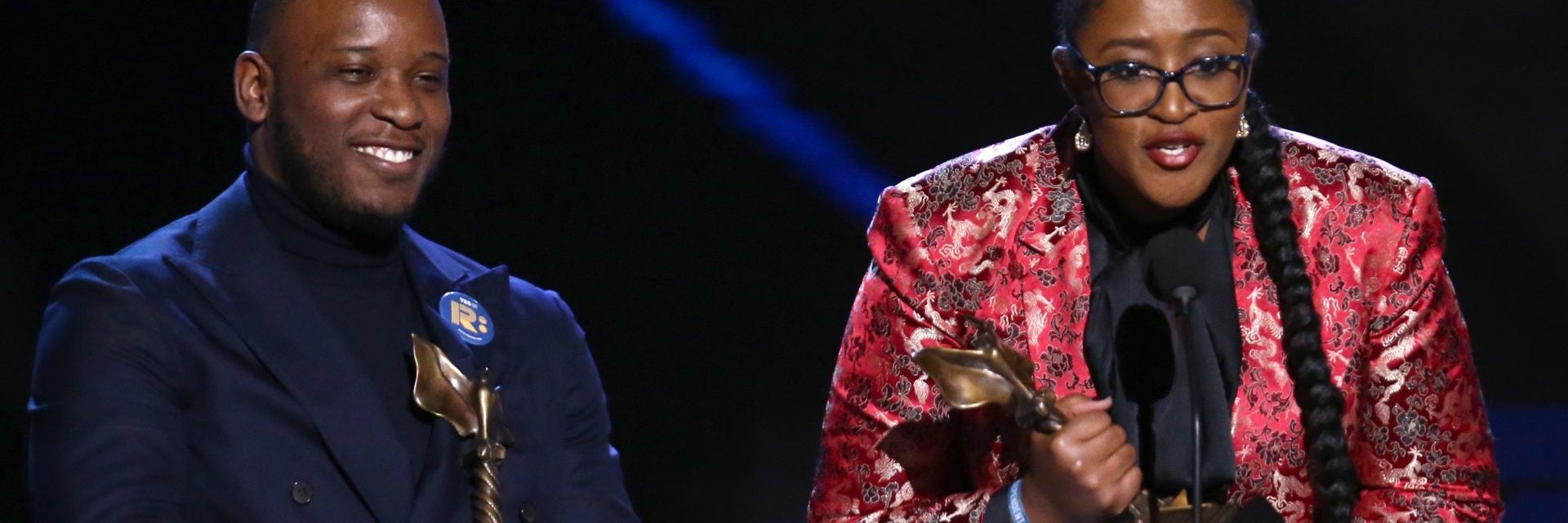It was just a few years ago when writer-director Stefon Bristol was at New York University working on his thesis film, See You Yesterday, stressed out because the project was falling apart: he had to fire his producer, production was stalled, and he was back at square one on his draft. But thanks to a fruitful collaboration with fellow NYU student and co-writer Fredrica Bailey, as well as producer Spike Lee, he can now look back at that time fondly as a winner at the 2020 Independent Spirit Awards for Best First Screenplay.
Bailey and Bristol have not only clenched one of the most coveted honors in Hollywood. When their film first dropped on Netflix last May, it instantly dominated social media conversation—catapulting the duo from virtual obscurity to celeb status. That’s because See You Yesterday tells, as Bristol describes it, the “unapologetic” story of a young Black science lover named C.J. (Eden Duncan-Smith) and her friend Sebastian (Dante Crichlow) who are determined to use time travel to resurrect her brother (Astro) who is wrongfully killed by the police.
Depending on who you ask, See You Yesterday is an engrossing narrative that uniquely centers a Black teenage heroine, donning gigantic goggles and a backpack, that can MacGyver her way out of any situation. Some might also connect to the film’s passion for social justice. And others still can’t stop talking about the film’s polarizing ending as C.J. tries for the umpteenth time to turn back the clock and rescue her brother.
Bailey and Bristol couldn’t be prouder to have worked on something that has done exactly what they intended: create a dialogue. Before they took home honors at the Film Independent Spirit Awards, the filmmaking pair spoke with ESSENCE about capturing Black humanity in sci-fi, sticking to their guns, and how See You Yesterday urges its audience to combat police brutality.
ESSENCE: Stefon, what made you recruit Fredrica for this project?
Stefon Bristol: I cried for a week after losing production [on the original film]. But I believed in it so much that I wanted to try this again. I asked the chair of the dramatic writing department at NYU if he had anyone that would be interested in this material. He gave me a short list and Fredrica was on it. To my surprise, she was the only black woman on that list. Not only that; she was the best writer on it.
Fredrica Bailey: Awww.
SB: I shit you not! And I needed the perspective of a Black woman for this film because I’m dealing with a leading lady who’s an African American girl from Brooklyn and I keep writing her like a dude. I needed her voice to make sure this script rings true.
ESSENCE: It makes such a difference when filmmakers make that conscious decision. Fredrica, what drew you to the project?
FB: Stefon and I did an interview and he made me sweat a little bit [laughs]. But we ultimately really connected to the material. We like a lot of the same films. We vibed really well on the different genres we enjoy, and we both like to write. So it just became a no-brainer. Stefon and I really bonded in such a good way that I hope he will be a lifelong collaborator.
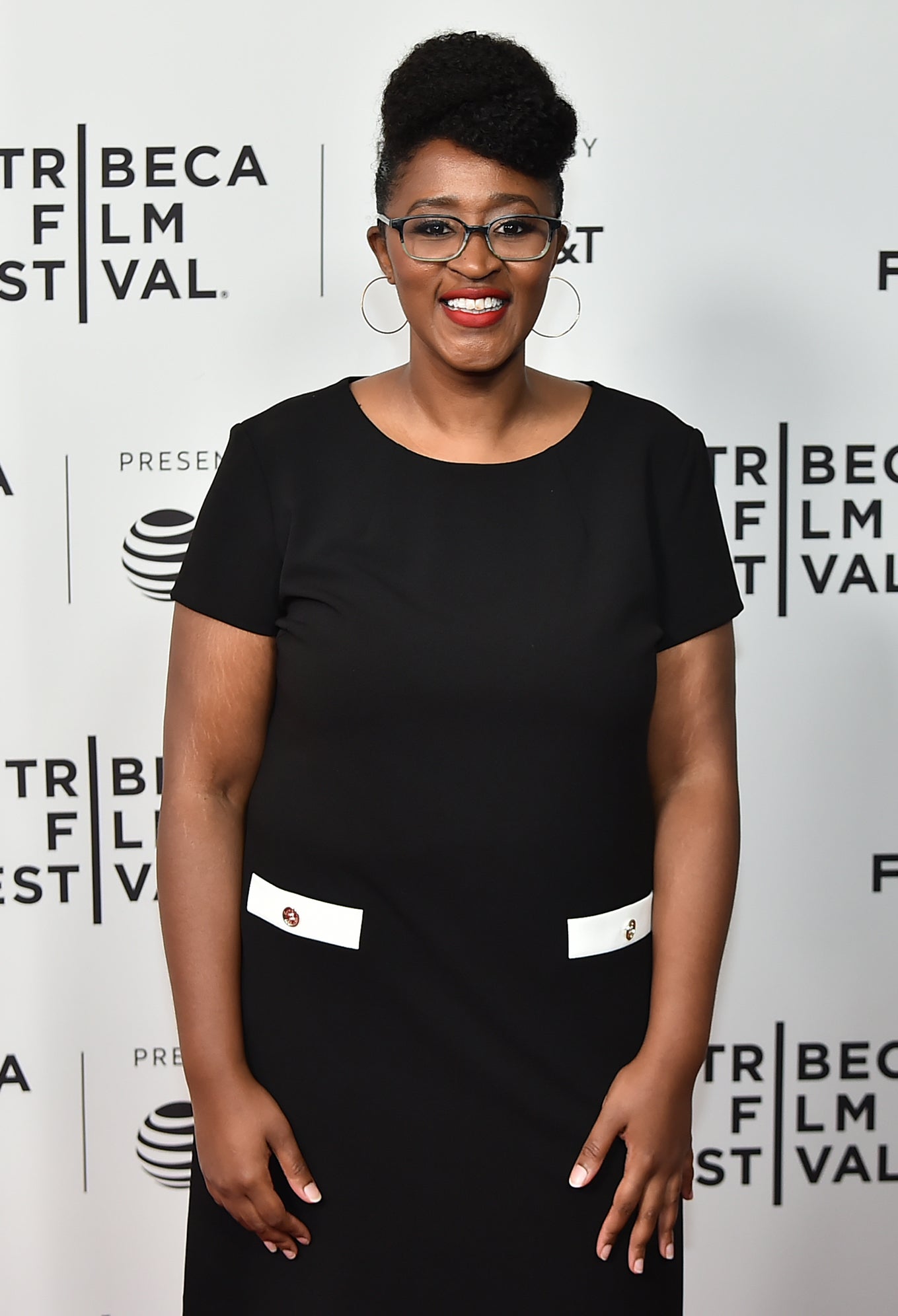
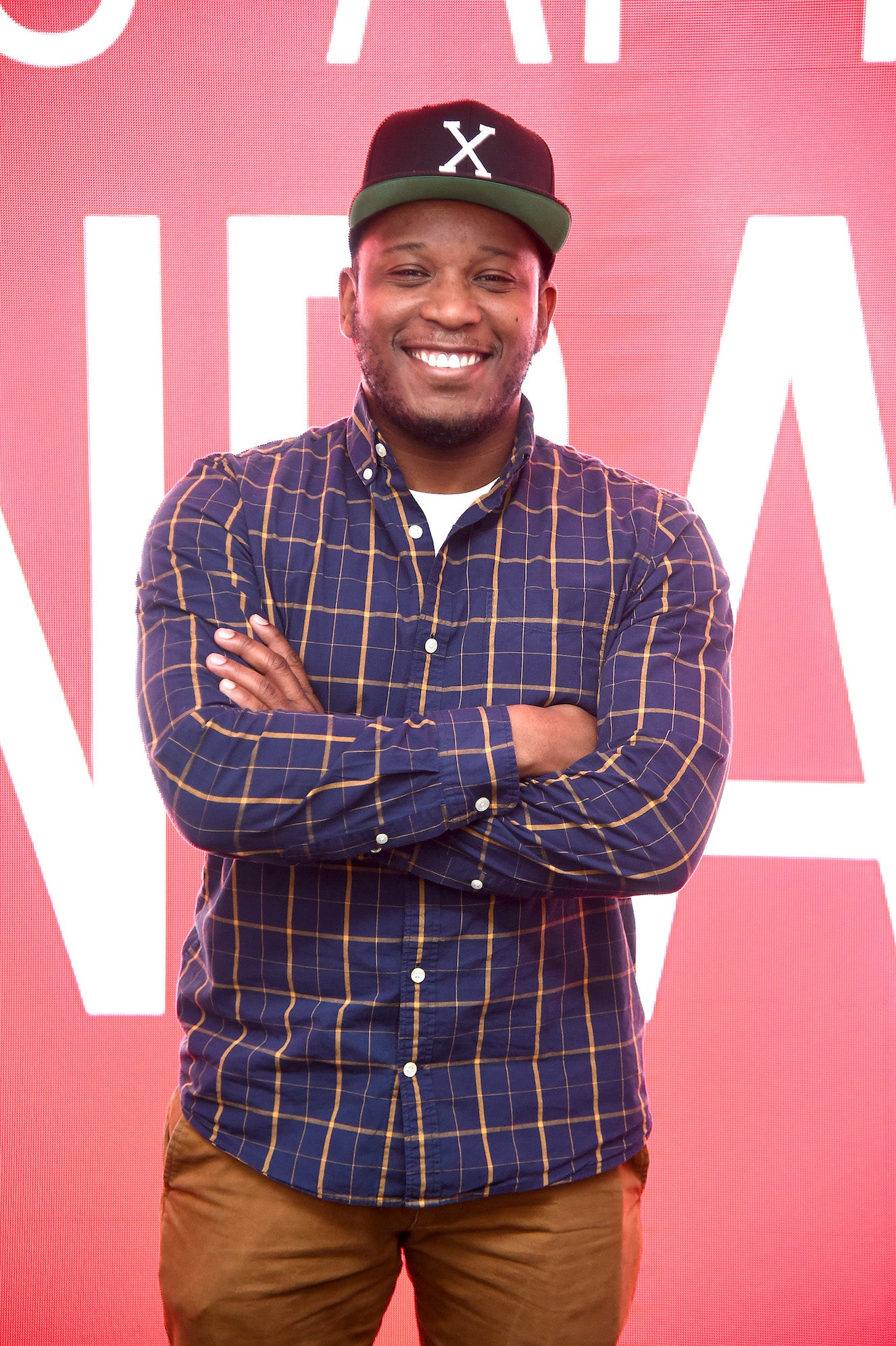
ESSENCE: What were you trying to expand on, or maybe even sacrifice, in your decision to turn the short film into a feature?
SB: The story now is more about family. [Fredrica and I thought about] how to portray this family without having a blemish on them. Because usually when a young Black person gets killed by a cop, the media is always trying to find a blemish about that person to justify the reason why they were killed. Like, he robbed a store the day before or he was smoking weed.
I wanted to make sure those blemishes were not there. No one smoked weed or took part in drug use in the film. I also wanted to expand on how brilliant these kids are. I haven’t seen kids like this on screen before. They’re into STEM. They want to go to a HBCU. They’re always in the garage, tinkering with technology and trying to discover new ways for them to use science. I wanted to sit with them and learn with them. In a short, it’s all about the mission. The movie is about the life.
I also wanted to set it in the neighborhood that I love. One of my favorite neighborhoods in New York is Flatbush, but we rarely get to see Caribbean neighborhoods in film. We always talk about the black American experience, but we never talk about the black immigrant experience. As someone who’s Guyanese and born in America with immigrant parents, I knew that there was so much we could expand.
ESSENCE: Of course. What were the qualities you were looking for in the casting process in order to bring these characters to life?
SB: Usually in Hollywood filmmaking, the actors are a little over the top sometimes to try to bring the energy up. But I was trying to make this more of an independent sci-fi film that’s quieter and focused on trying to make this feel like real life. This is very much a Brooklyn film. So, almost everybody in this movie is from Brooklyn. Eden and Dante are best friends in real life. They actually grew up with each other. That’s why their chemistry on screen is so believable. Marcia Stephanie Blake is from Brooklyn as well and of Jamaican descent. Astro is also from Brooklyn. That was very important to me.
ESSENCE: You mentioned that it was important for you to humanize young Black science nerds in this film. What kind of research did you do, if any, to help illuminate their colloquialism, and how they react and to and navigate the world?
FB: We did a little bit of research on the science side of things, as far as looking at time travel and what actual research has been done on that thus far. [We looked into] the type of terms one would use if they were exploring that subject matter. But Stefon especially wanted these kids to be Brooklyn and to be New York in the way they interacted. So, while they had this scientific vocabulary, it was really important to integrate those two things.
SB: Absolutely. I went to a physics professor at NYU. I also went to a gaming professor to figure out how to set the rules up. I read some books on time travel. I’m not an expert in STEM. I’m not an expert in time travel. But hopefully Fredrica and I got away with some of it [laughs]. Most people are familiar with the Strength theory or Lumbold theory. But Eden is also a scientist. She’s at Hampton University studying physics, and has work studied with NASA. She helped a lot with the script when it came to terms and whatnot. She would tell me if something was not believable. So, not only was the teamwork with Fredrica extremely helpful, but a lot of the actors had input as well.
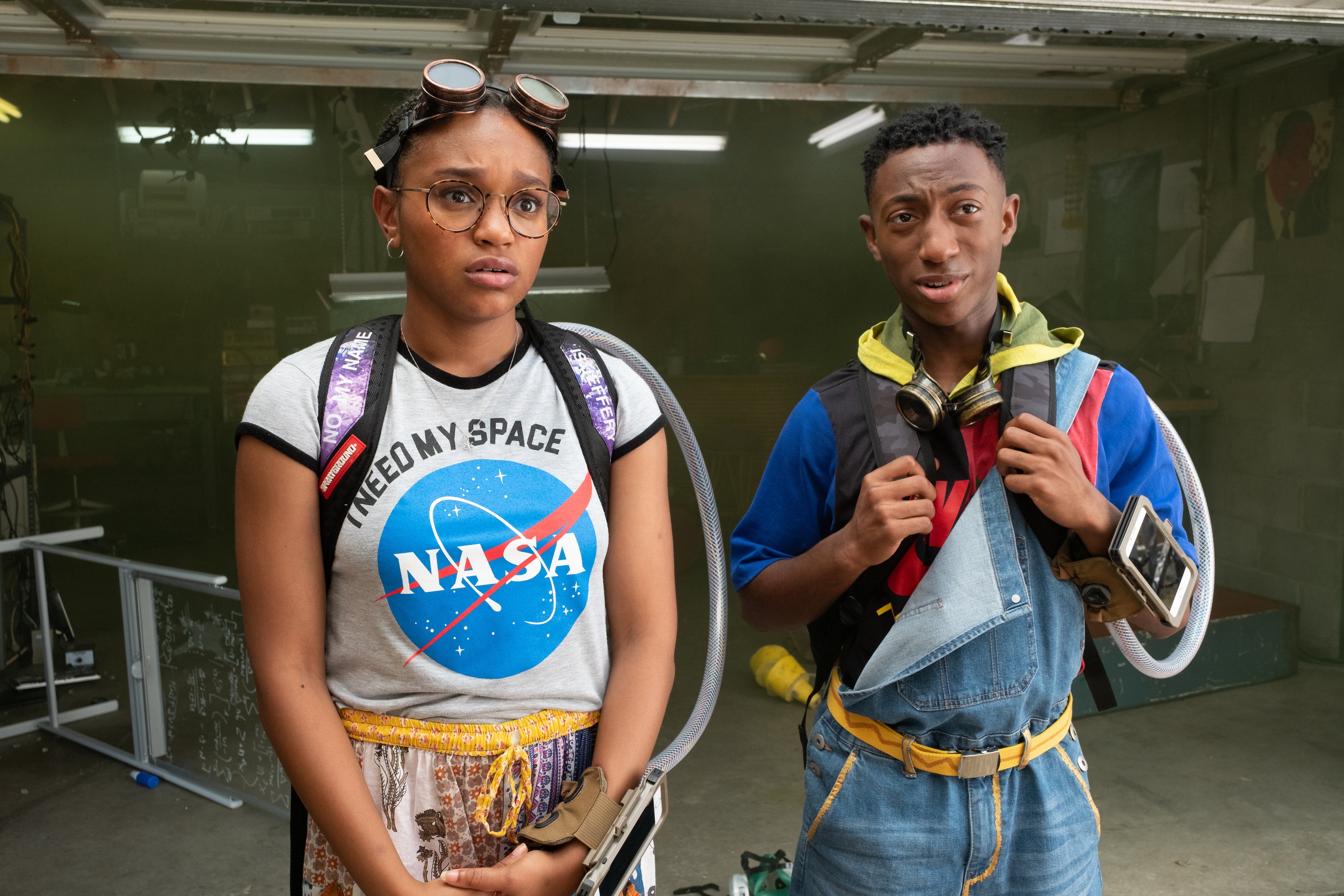
ESSENCE: Michael J. Fox has an exceptional cameo that references Back to the Future. Of course, my jaw dropped when I saw him. But I wondered whether younger audiences that are C.J. and Sebastian’s age would understand its significance or what you were trying to show in that moment.
SB: Eden and Dante knew who Michael J. Fox was and saw Back to the Future. But to have that in there is not only to surprise our generation but [to encourage] the next generations to do their research or Google it. If their parents or older siblings are watching the movie with them and wondering why they’re shocked [when Fox appears on screen], they need to tell them to see the movie. That’s one of the movies that helped me fall in love with cinema.
FB: We didn’t have Google back in the day. We had encyclopedias.
ESSENCE: [Laughs] I know, this younger generation is so addicted to their screens and don’t know anything about that encyclopedia life.
FB: Encyclopedia Britannica.
ESSENCE: That’s right! See You Yesterday is such a great nod to classic time travel films like Back to the Future that are usually uplifting or inspiring in some way. Were you ever concerned about the themes of trauma and mortality your characters are dealing with, especially considering it is one of the few in the genre that center black protagonists?
FB: One of the things that I think is so special about this film is that we’re blending genres. We’re still giving audiences the old school kids adventure, but we also wanted to make sure that we talk about this big social justice issue of police brutality. It’s a heavy subject, but I think we did a great job tonally marrying them. We wanted to bring more attention to [police brutality]. I think there’s a tendency to forget about it in the news and only focus on one issue at a time. [With this film] we wanted to keep the issue at the forefront so we can continue to think about what we need to work on.
So, I wasn’t worried about exploring those themes because that was such an integral part of making the film and trying to bring it to life.
ESSENCE: I can understand that. I do appreciate that the film also explores how black teens process grief, which is something that even adults find difficult to articulate. What was important to you to convey to multiple audiences in that respect as they watch C.J. repeatedly try to resurrect her brother?
FB: We wanted to touch on the question of destiny and fate. Can you change the past? In real life, there are things we would like to go back and change, people we would like to say one more word to before they leave us. That’s a universal thing. But the reality is, you can’t go back. As Stefon says, this is a movie that is begging for you to act. What things can you do in your life moving forward to prevent those type of things from repeating itself?
So, we wanted to have the characters answer those questions. We can’t change the past, but we can always effect change in our present.
ESSENCE: I’ve talked to a few folks about it, including my mom, who were bummed that that the film doesn’t exactly have a happy ending. Did you think a happier conclusion would have misguided the audience or taken them farther away from reality than you wanted to go?
SB: We’ve got to stop making movies that are dishonest. That’s not my style. I really don’t care if people are disturbed by it or uncomfortable. It’s disturbing and uncomfortable to wake our asses up.
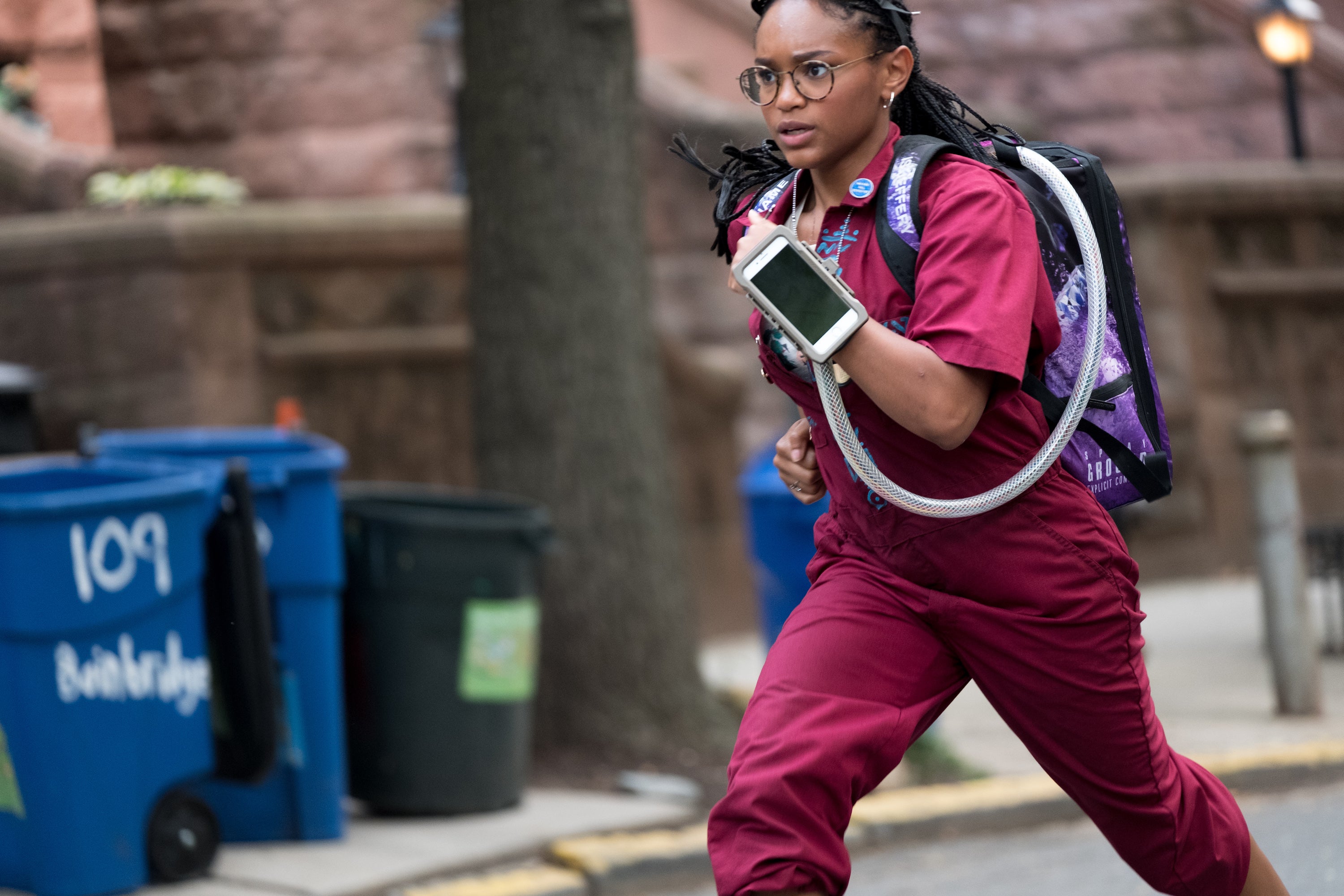
ESSENCE: I get that. This is also one of the few time travel films that doesn’t have a whole lot of special effects. Why did you choose to abandon that distinctive element in the genre?
SB: I love sci-fi/adventure films, but I loathe how it becomes more of a spectacle than a story. I just wanted to focus on the values and dynamics of this family. I want to fall in love with C.J. and Calvin. My favorite scene in the whole movie is those two at the kitchen sink.
FB: Me too!
SB: Because that’s what the movie is all about. We can talk about Spider-Man. We can talk about Avengers. But you walk out the theater feeling like it was a spectacle and you leave with nothing. I cannot make those kinds of films. No respect to Marvel at all. The reason why Black Panther is so powerful is because it’s all about that family. I’m about the family and what you’re trying to say to the audience. It’s pure filmmaking. [I’m always thinking about] how to make a film that’s just about the characters and very little about the spectacle.
ESSENCE: Sure. At the end of the day, it’s really about pushing Black humanity to the forefront, rather than relegating it to the background like what has historically been done.
FB and SB: Exactly.
ESSENCE: What was the most valuable thing both of you learned about the filmmaking process while working on bringing this project to screen?
FB: It was just great to dig into the writing process and learn about refining drafts and revisions and be welcomed onto the set to see what happens after the writing is done. In many ways you’re still writing and working on things but seeing Stefon do his thing with the production and directing was really beneficial for me.
SB: For me, it was learning to not please everybody. When the movie released, I was really nervous about reactions. I was up at 6am and went on Twitter and everybody was complaining about the ending. I’m so glad I stuck to my guns [about it] because that created dialogue. People are talking to their friends or people they don’t know at Q&As or after a screening and actually want to learn or have their own interpretation of the ending is what I wanted.
There are some people who just want to know what happened, but that’s not my mission. My mission is to challenge you as an audience. The end is very intentional, and I fought very hard to it. That dialogue needed to happen.
ESSENCE: Do you consider the ending to be bleak?
SB: A lot of these families have lost their loved ones due to racist police violence. They don’t have that happy ending. They don’t have closure. I wanted to make the audience feel what these families feel. Trayvon Martin’s family don’t have any closure. The wife of Eric Garner has no closure.
If I were to show C.J. saving her brother, it would be a very offensive way of exploring what this film is ultimately saying about police brutality. If I show her sacrifice herself, or another Black man or a Black woman getting killed in the process of saving her brother, then I’m telling the African American audience that there’s no hope for them in the face of law enforcement, and I can’t allow that. We had C.J. running toward the camera as a way of telling the audience that I’m running towards you for help. Please get up from the couch and do something about it.
ESSENCE: Interesting. My interpretation of that final shot is a bit less hopeful. I think she is encouraging us to continue the fight, though it might be a losing battle. Because as informed audiences living in today’s reality know, time travel is not actually going to solve the issue. But our determination might.
FB: A lot of audiences will have different ideas about the ending based on what experiences they’re bringing to the story. So, it can mean what you said, but I’ve also heard some people say that they’re hopeful she’s going to get it right this time. Then there are others who think she’s going to be caught in this cycle of constantly trying to fix it. Maybe that means that we’re always going to be fighting this fight. It can be interpreted so many different ways, and none of it’s wrong.
ESSENCE: That’s true. I can’t let you both go without congratulating you for two Independent Spirit Award nominations for Best First Feature and Best First Screenplay. What does this recognition mean to both of you and to share it with producer Spike Lee?
SB: It means I have to get another job.
ESSENCE: [laughs]
SB: I’m trying to use this to create more work. To share this with Spike is weird because I remember when I was 18 years old and learning who he was after seeing Do the Right Thing for the first time. Cut to me at 32, sharing a nomination with the man who inspired me. Absolutely unheard of. It’s bizarre and should have never happened, but by the grace of God it has.
I’m also happy to be sharing it with this wonderful young lady as well.
FB: Awww.
SB: She had to deal with my shit, my nonsense. I had to stress her out sometimes. Like, you’ve got to have the job done today. I’m blessed and humbled.
FB: I feel the same. It means a lot. It’s still surprising to me because I didn’t see it coming. Sometimes I’m talking to Stefon, like, Do you remember that we were just meeting at the NYU library every Sunday for, like, four hours some years ago just trying to work on this short? And here we are today nominated for the Independent Spirit Award? How crazy is that? It’s a humbling honor and I’m super blessed and grateful to God for the opportunities. I’m especially thankful to Stefon. I can’t imagine sharing it with anyone else. But I’m also grateful to Spike for all his support throughout the process on both the short and the feature.
